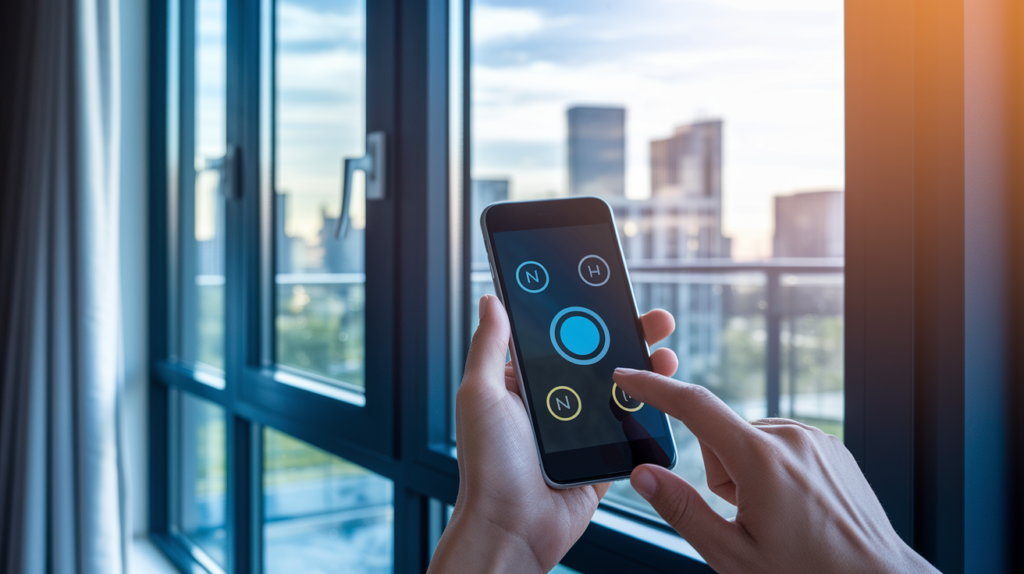
Let’s be honest—your windows probably aren’t doing much besides letting in sunlight and drafts. But smart windows? They’re shaking up the game by doing more than just sitting pretty. With the growing demand for energy-efficient, tech-integrated homes, smart windows are quickly becoming a must-have upgrade for forward-thinking homeowners.
Whether you’re deep in a remodel or just window-shopping for the next big trend in home improvement, smart windows offer a blend of style, tech, and savings that traditional panes simply can’t compete with.
TLDR – Quick Guide
- What they are: Smart windows can automatically tint, block heat, or adapt light levels based on environment or remote control.
- Why it matters: They improve energy efficiency, privacy, comfort, and reduce glare—especially in sun-heavy regions.
- Should you install? If you’re upgrading or building, and want long-term energy savings and smarter living, yes.
- What they cost: Prices vary, but they’re typically higher upfront than traditional windows—balanced by energy savings over time.
- Best for: Tech-savvy homeowners, modern builds, and anyone serious about sustainable living.
Detailed Breakdown
Smart windows, also called switchable windows or dynamic glass, are glazing systems that change their properties in response to light, heat, or electrical input. The tech comes in several flavors:
- Electrochromic: Adjusts tint with electric current. Great for managing glare and heat.
- Thermochromic: Reacts to temperature shifts, darkening in strong sunlight.
- Photochromic: Changes with UV exposure—just like transition sunglasses.
- Suspended Particle Devices (SPD): Contains particles that align to block or allow light when voltage is applied.
Why They’re a Game-Changer
Smart windows aren’t just a luxury. They tackle a few real-world homeowner headaches:
- Energy Efficiency: By reducing the need for HVAC and lighting, they lower utility bills.
- UV Protection: They block harmful rays that can fade furniture and floors.
- Glare Reduction: Perfect for homes with large south-facing windows or work-from-home setups.
- Privacy On-Demand: Some models can become opaque, giving you control without blinds or shades.
Should You Install Them?
Here’s the direct scoop: if you’re already investing in home upgrades, remodeling, or planning a new build—smart windows are worth serious consideration.
They especially make sense if:
- You’re tired of sky-high energy bills.
- Your home gets intense sunlight.
- You want an eco-conscious, high-tech lifestyle.
- You’re upgrading with long-term ROI in mind.
Yes, the cost can be higher than traditional windows—typically ranging from $50 to $100 per square foot compared to $10–$15 for standard glass. But consider this: smart windows can slash energy consumption by up to 20–30%, depending on your location and window orientation (source).
Key Takeaways
- Smart windows are dynamic glass systems that respond to light, heat, or electricity.
- They significantly enhance energy efficiency and comfort while reducing glare and UV damage.
- Upfront costs are higher, but the long-term energy savings and modern convenience make them a savvy investment.
- Perfect for remodelers and eco-conscious homeowners aiming for style, sustainability, and tech-forward living.
- They’re not just trendy—they’re practical, future-proof upgrades for anyone remodeling or building in 2025 and beyond.
FAQs
1. Do smart windows require a power source?
Some types, like electrochromic windows, need a small electric charge to change tint. Others, like thermochromic or photochromic glass, rely on environmental changes and don’t require wiring.
2. Can smart windows be installed in older homes?
Absolutely. While it’s easier in new builds, smart windows can be retrofitted into existing structures, though installation complexity and costs may be higher.
3. How long do smart windows last?
Most quality smart windows have a lifespan of 20–30 years, similar to or longer than traditional double-pane windows, depending on usage and manufacturer.
4. Are they compatible with smart home systems?
Yes. Many smart window systems integrate with Google Home, Alexa, and other smart ecosystems, allowing remote control or automation based on time or weather.
5. Do smart windows add resale value?
Yes—especially in energy-conscious markets. Homes with smart features, including windows, tend to sell faster and for more money.
